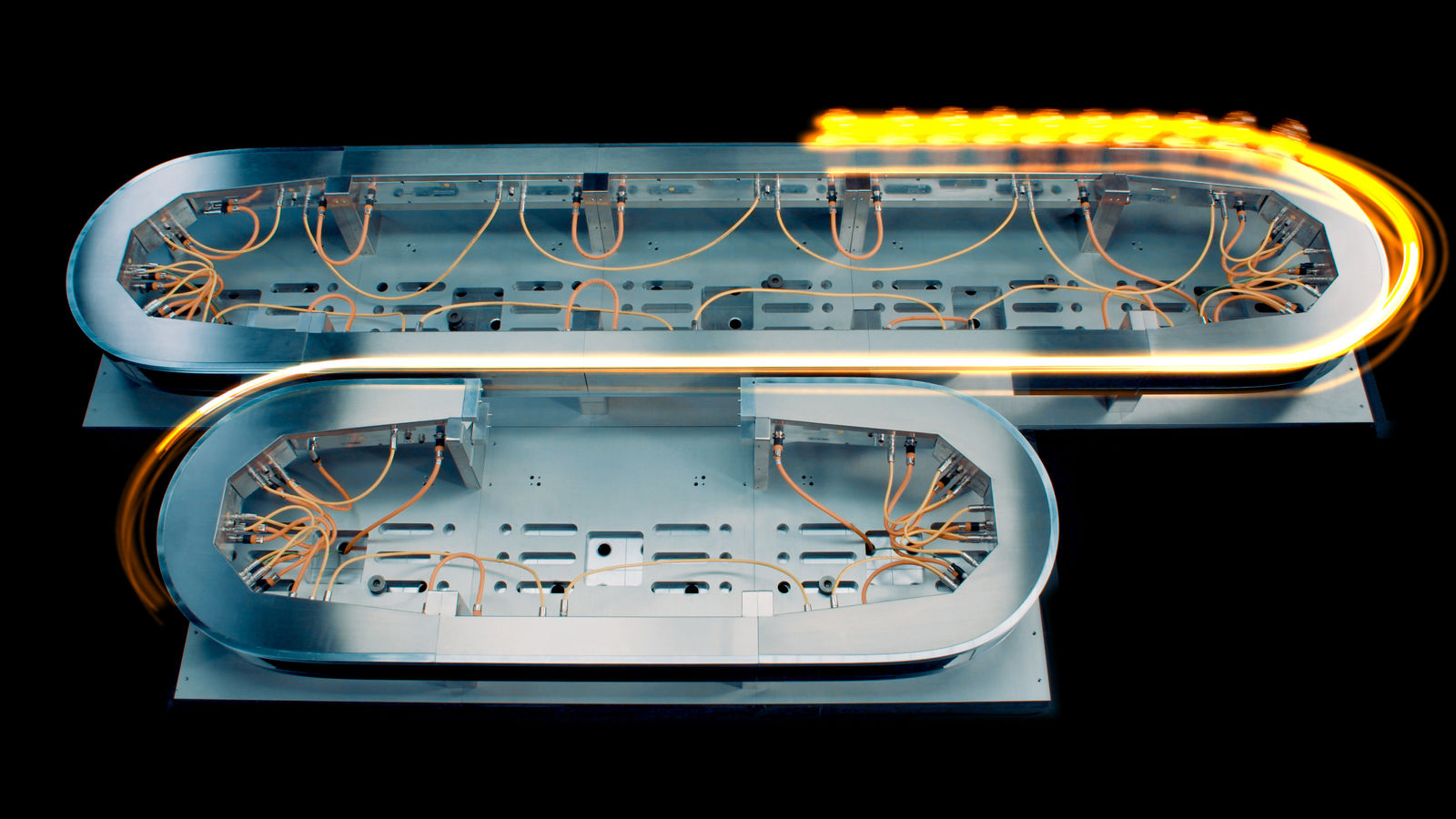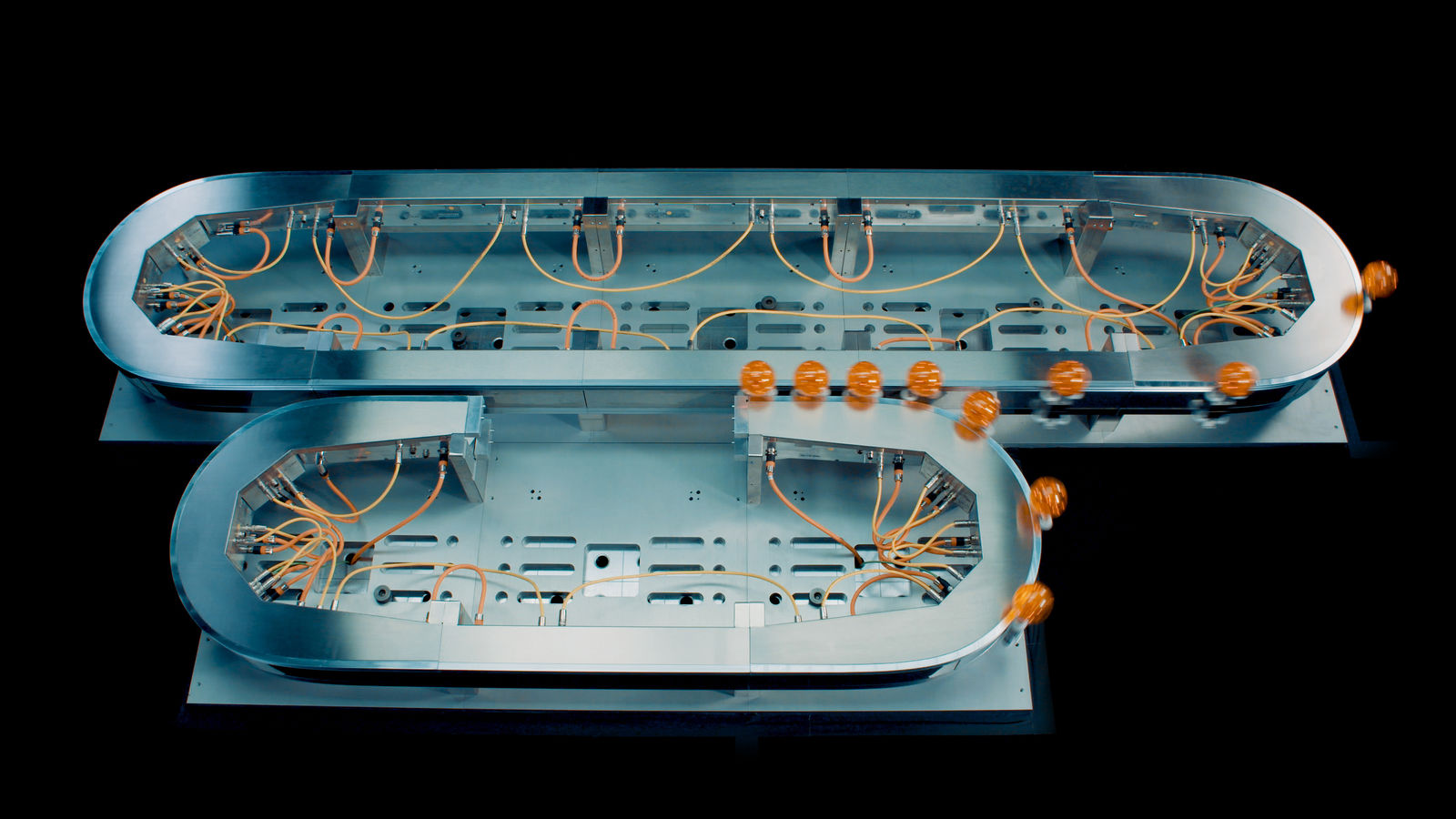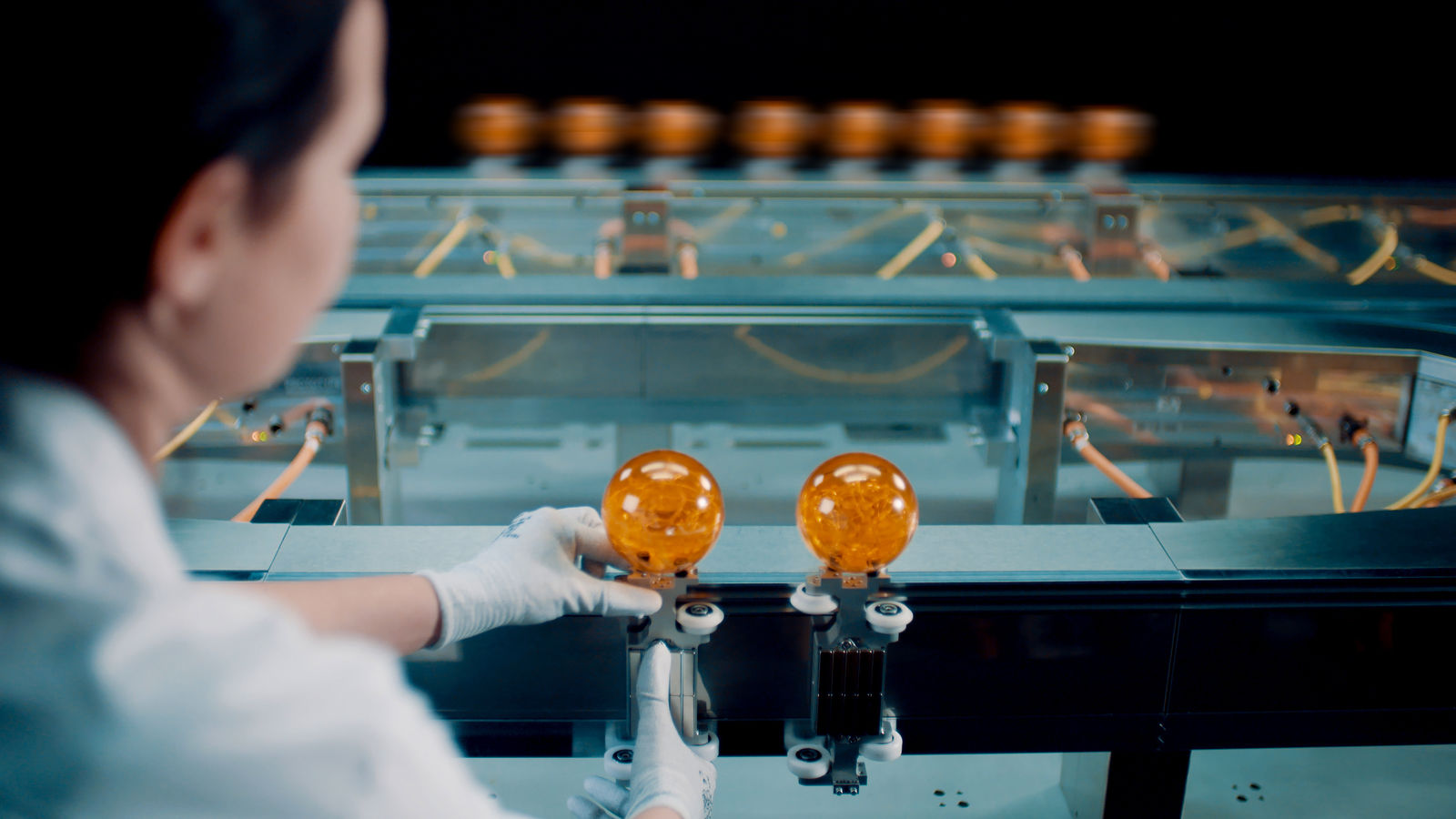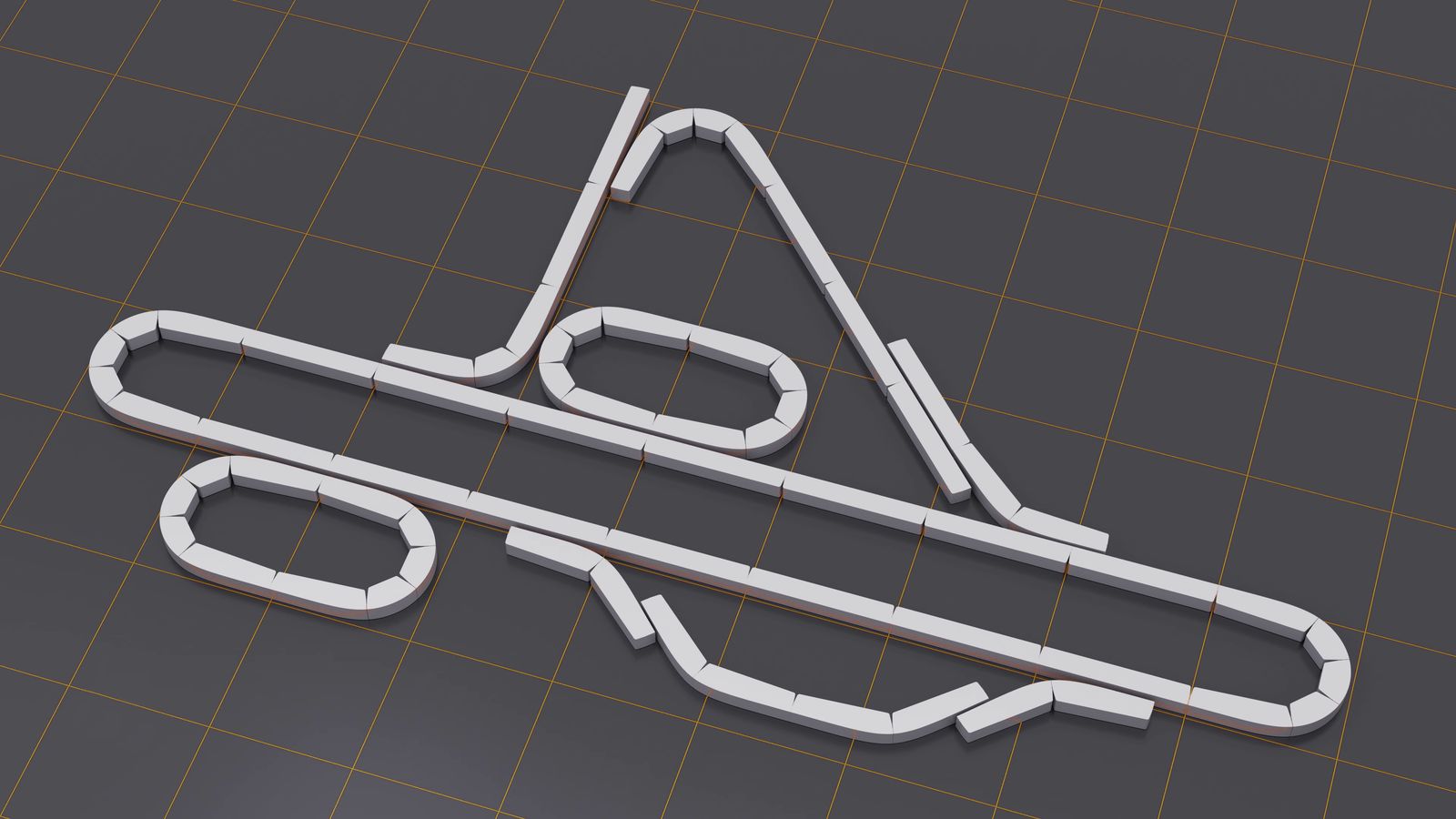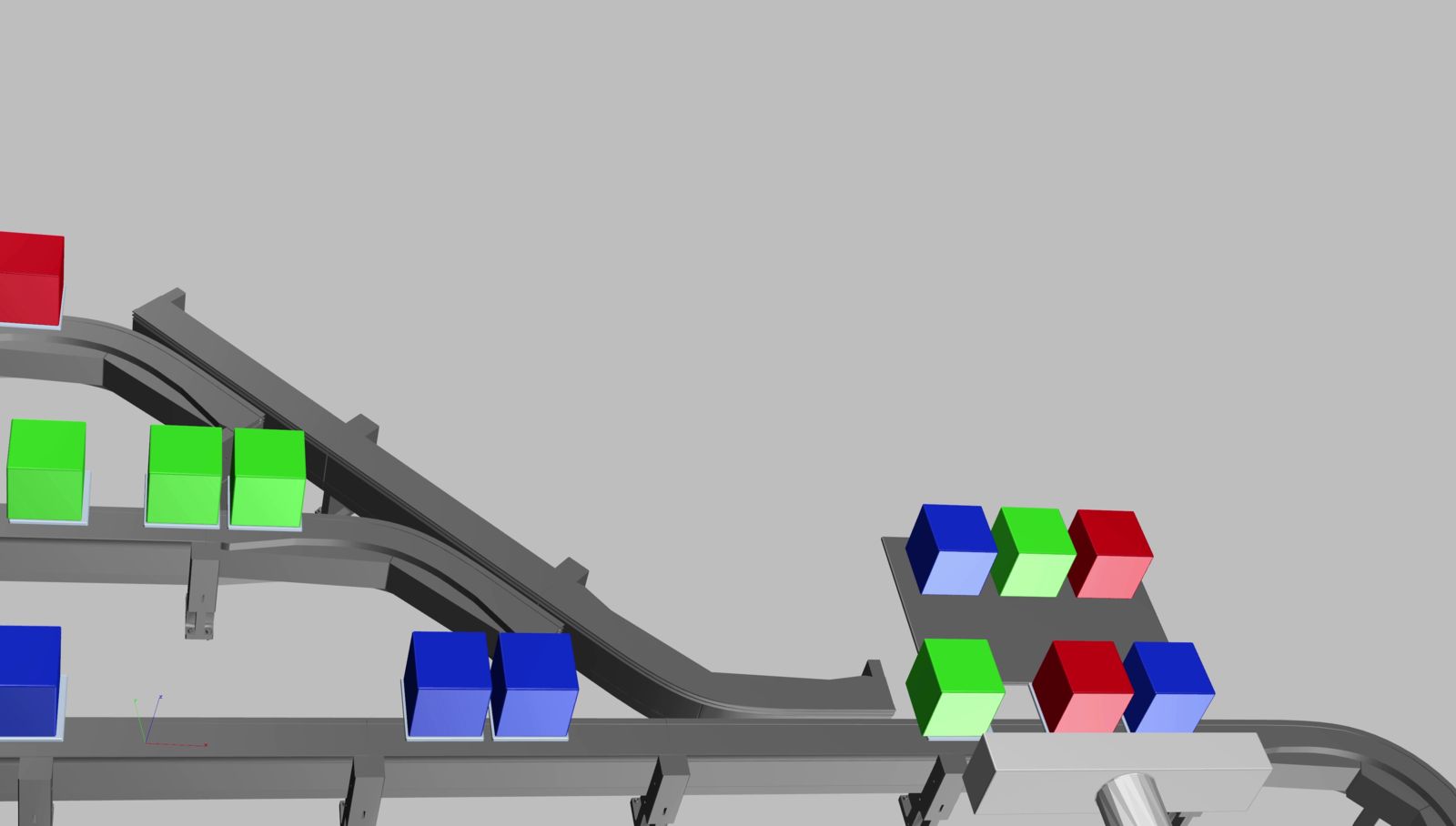Digitalization alone is not enough to achieve true mass customization and batch-of-one production. Such IIoT milestones will rely equally on new approaches in mechanical design and motion control hardware. Breakthrough innovations in these two areas form the heart of ACOPOStrak – an intelligent transport system whose revolutionary design enables adaptive manufacturing systems and promises a new era in flexible and efficient production.
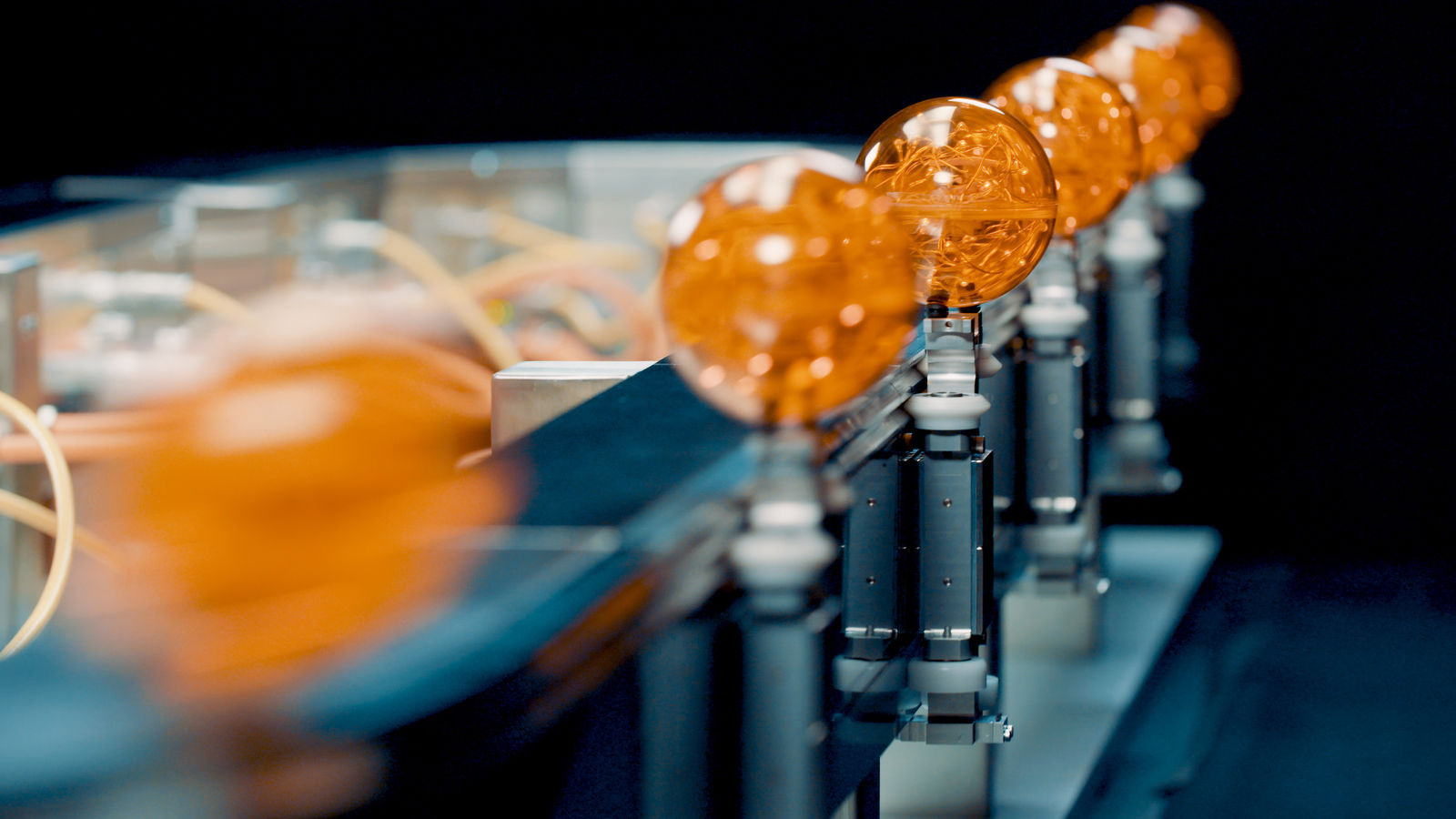
Manufacturing companies are on constant lookout for solutions that get new products to market faster and make them more competitive in global markets. The crux of the challenge is finding a way to maximize overall equipment effectiveness (OEE) and productivity, even when mass producing customized products in batches of one. "The much discussed topic of digitalization based on communication technology and software takes too narrow a focus," contends Robert Kickinger, mechatronic technologies manager at B&R. A new generation of requirements also calls for radical new thinking in the way products are transported through machines and production systems – and B&R has stepped up to the challenge: "In developing the intelligent ACOPOStrak transport system," he says, "we have set the stage for revolutionary new machine concepts."
Diverter maximizes OEE
So, what is it that makes the intelligent transport system so uniquely suited for automating adaptive processes? "The diverter is – quite literally – a pivotal component of the system," explains Kickinger. "It is 100% electromagnetic and therefore entirely free of wear." Like a highway junction, the ACOPOStrak diverter allows product flows to diverge and converge. "The diverter allows the shuttles to switch tracks at full speed with no compromise in productivity," he emphasizes.
Mass-produced items such as bottled beverages can be grouped on-the-fly into custom six-packs – three of one flavor, two of another and one of a third – without any changes to the hardware. The diverter also allows defective products to be sorted out as soon as they are identified, rather than continuing on to the end of the line as they would in a conventional system. This has a positive effect on overall productivity.
Parallel processing
ACOPOStrak and its diverters also add a new dimension of flexibility for implementing parallel processing. The product flow can be divided, pass through multiple processing stations and then merge further down the line. This way, production speed is no longer throttled by the station with the slowest processing time. "The end customer can increase productivity without a corresponding increase in machine footprint," Kickinger explains. In other words, ACOPOStrak boosts output per square meter. "Ultimately, that means a higher ROI," he adds. When you build a machine or line using this intelligent transport system, you have the modularity and flexibility to add individual track segments and processing stations in response to changes in demand. The truly adaptive, scalable machines envisioned for the Industrial IoT become reality.
ACOPOStrak-based manufacturing systems are also exceptionally fault tolerant. If there is a problem with one valve in a bottling line, the bottles are simply no longer sent to that valve. The defective valve does not result in waste, which makes a big difference in the OEE quality factor.
Zero-downtime changeover
The hot-swappable shuttles can be replaced tool-free and on-the-fly for unprecedented availability. When switching products, all the operator has to do is place the wheels of the new shuttle on the guides. The shuttles are held on the track purely by permanent magnets. Changeover and service can be made even more efficient by including a pit lane in the track layout. "One way of thinking of it is like the bench in ice hockey," says Kickinger. The new shuttles are mounted in the pit lane and then channeled to the track's actual production lines via a diverter. In the same way, any shuttles that are no longer needed can simply be rerouted to the pit lane. "All of this takes place at full production speed," he emphasizes.
ACOPOStrack's absolute design flexibility allows it to morph into all types of open and closed layouts by arranging the segments in different combinations on a grid. The core of the track system is a linear motor assembled from four types of modular segments: a straight segment, a 45° segment and two 22.5° segments – one curved to the right, the other to the left. "ACOPOStrak adapts perfectly to any production site," explains Kickinger. "And at the same time, it opens up completely new machine designs that have never before been possible."
Highly dynamic and flexible
The intelligent transport system offers more than just flexibility, however: it is also unmatched in performance. The system is capable of 5 g acceleration and reaches top speeds in excess of 4 meters per second with a minimum product pitch of only 50 millimeters. "When you combine these performance numbers with the benefits of the diverters and the extreme design flexibility – it's a total package the market has never seen before," says the mechatronics expert, confident that the industry is the verge of a generational leap in productivity and accelerated ROI.
Faster time to market
B&R provides an extensive range of software functionality to get ACOPOStrak up and running with minimal time and effort. The same application code can be executed in simulation or on the actual hardware with no limitations. "Developers can switch back and forth between simulation and real hardware as often as necessary," Kickinger explains. This shortens development and commissioning times considerably. "That's an unbelievable advantage in terms of time to market."
Developers also benefit from process-oriented programming. They simply describe the rules that define the product flow on the track, rather than having to program a multitude of axes and shuttles individually. Autonomous traffic control with integrated collision avoidance takes further work off the hands of developers.
Mass customization
With ACOPOStrak, B&R has designed a solution that makes flexible, modular manufacturing systems highly profitable to operate. "Our system enables high overall equipment effectiveness, high return on investment and short time to market," summarizes Kickinger. And with that, the industry is on the fast track to true mass customization.
Author: Carmen Klingler-Deiseroth, freelance journalist
Profitable production in batches of one
Demand for personalized products continues to increase, and consumers are willing to pay higher prices for them. Mass customization thus offers enticing economic returns. Implementing the new approach in a cost-effective way, however, remains a major challenge for most industry segments. That's because any increase in system flexibility is usually accompanied by a reduction in overall equipment effectiveness (OEE).
The goal of mass customization is therefore to keep the three factors of OEE – availability, performance and quality – at a level consistent with what can be achieved in mass production. In addition, manufacturers seek to maximize their return on investment (ROI) and to minimize their time to market (TTM) for new and improved products. This is the only way to make large-scale mass customization viable from an economic perspective.
